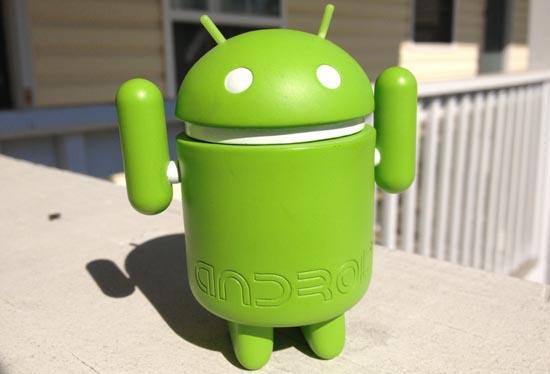
As the title suggests, I'm about to take on the "fragmentation" thing head-on. But, instead of complaining about it and wondering, "Why, oh why" does it keep getting worse, I'm going to tackle it from another perspective. While Google and all the manufacturers who have embraced Google as their main go-to mobile operating system seem perfectly content with the way that they do business, there's no denying that hardware can't keep up with software, and there's just no way around that. So, instead of actually letting the word fragmentation be a negative aspect for Google, the Mountain View-based company should actually start using it as a good thing.
That's right, turn that negative word right around, and make it something that the company can actually use to their advantage. Or, at least, to make fragmentation something that the general consumer can understand and even appreciate. And there's an easy way to do that, actually: follow in Microsoft's steps.
Before we get to that point, let's be clear: fragmentation is a terrible thing, because it upsets the customer. And for all those editorials out there saying it isn't a big deal, that it doesn't actually affect you in any way, well, I don't agree. And I don't agree because of the situation that Motorola has put all purchasers of recently released DROID phones in. As Taylor put it, their update time table is absurd, and unless Motorola can release the Android 4.0 Ice Cream Sandwich update before the second quarter of 2012, all those angry customers are going to keep being angry.
But that is the nature of Android, unfortunately. And, as I've said in the past, our phones aren't meant to actually appreciate over time. You buy the phone with Android 2.3 Gingerbread, and that's what you get. Unless the company's make some kind of comment that you'll be upgraded at some point (like Motorola and HTC did), then you shouldn't actually ever think you'll get an upgrade to the next batch of software. Yeah, even if you have the most high-end device out there, that next software version isn't guaranteed for you. (It should be, but it isn't.) Manufacturers make money by selling phones, so making you want to buy the next new phone with the latest and greatest software makes more sense for them, even if it's not a lot of fun for the consumer.
And that's why Google needs to slow things down, and actually take hold of the reigns. And, yes, follow in the footsteps of Microsoft. You see, Microsoft has this thing figured out, as far as fragmentation goes. They've already said that the next update, Tango, is going to draw a pretty distinct line between devices out there. And right there, that's where the first bit of fragmentation will come in, but it won't be a bad thing. Tango is meant for a certain market, for certain devices, and then there's another update for all the other phones out there, known as Apollo.
Android needs this. Because it's remarkably frustrating that while Android 4.0 Ice Cream Sandwich is the current version of Android, and it is readily available to manufacturers to put on phones, that these companies are still happy to launch Android 2.3 handsets, and never bat an eye. So, something needs to change.
And here's the plan, Google: you make Android 2.3 Gingerbread for low-end devices only; you make Android 3.x for tablet devicesonly; you make Android 4.0 the standard stock version of Android for all mid-range to high-end devices only; and then you makeAndroid 5.0 (Jelly Bean?) for high-end devices only. You make these very real, very distinct software version for a set market of devices, and you make fragmentation work for you.
We know that Android 3.x is the "tablet OS" for Google's Android, and they should keep that. Don't add Android 4.0 to tablets: just add 4.0 features to Android 3.x tablets, and call it good. Keep Android 3.x the tablet OS. And make 5.0 the high-end version of Android, meant specifically for the flagship devices out there. Android 4.x for the phones with high-end specs but not flagship status, as well as the mid-range handsets out there. And then, finally, you make the bottom of the barrel the previous version of Android, or Android 2.3. You draw the lines, Google, and you set the guidelines.
Stop letting the word fragmentation mar the image of Google, and start making it work for you. Start taking control, because having so many different angry customers is just getting old.
Right?